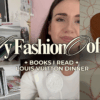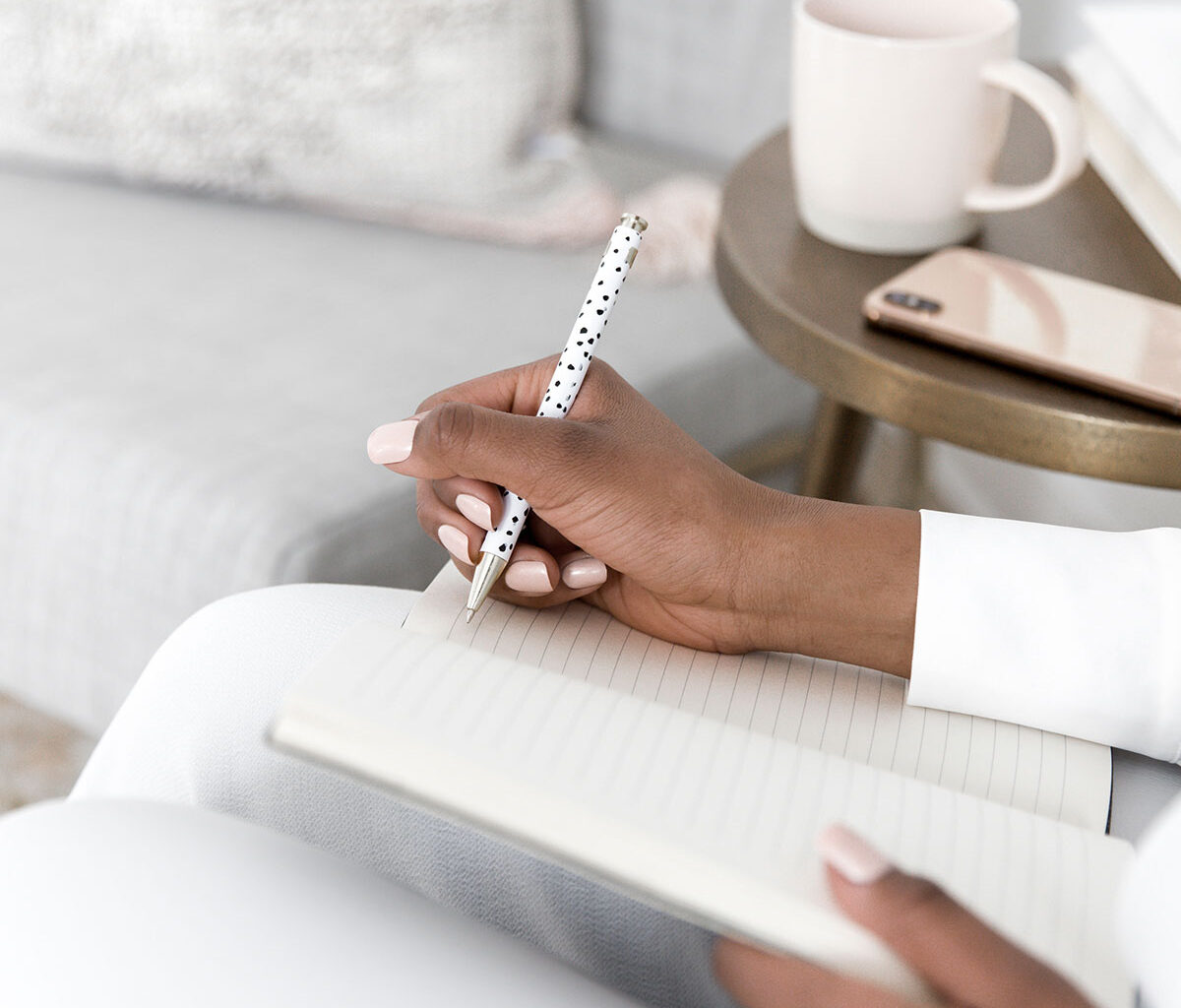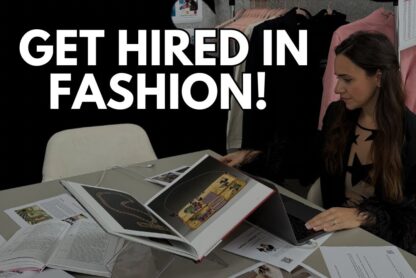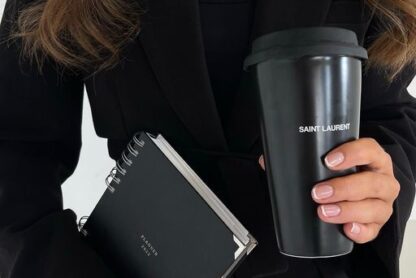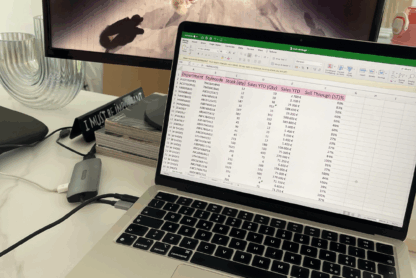If you’ve been reading this blog for a long time, you know that I always say that the most important thing you need to do to land a job in fashion is to personalize your application.
Indeed, using the same resume for all the jobs is not ideal as each company and position has its own requirements.
One of the best ways to personalize your resume and tailor it to the position is through your skills section.
Maybe so far you might have drafted the list of your skills quickly, underestimating the power of this section and the impact it has on the application. However, you should know that building an effective skills section on your fashion resume requires a strategic approach, personalization, and a commitment to skills development. Never underestimate the power of matching your skills with the specific requirements of the job you desire. This approach sets you apart from other applicants and demonstrates your dedication to your future in the fashion industry.
I often get asked what skills are needed to work in fashion. Although some skills are shared by several roles, such as Excel, they also depend on the role you want to pursue. This means that your skills section will be different. It depends if you are applying for a marketing role, a stylist one, or an internship/job in fashion buying.
Using generic skills that you might find on Google is not going to bring you anywhere. Remember: A resume that works for all the jobs doesn’t work for any.
So, let’s see how to build the skills section of your fashion resume.
How To Build The Skills Section Of Your Fashion Resume (And Tailor It To The Position)
For starters, if you think you have nothing to offer to the fashion industry because you didn’t attend a fashion school and don’t have experience, let me tell you this: My friend, you do possess already many skills even if you have never actually worked in fashion before. We all acquire skills from our personal experiences and educational background. We also learn from online courses we’ve taken, volunteering, and freelancing. Learning also comes from previous experience even from other industries (hello transferable skills).
How To Understand Which Skills You Should Put On Your Resume
The majority of people normally suggest looking at your previous experiences. Also, what you studied to find out the skills that you already possess. This is so you can build the skills section of your resume this way.
I, however, teach a different approach in my Break into the Fashion Industry course. I share unconventional strategies to break into fashion, which I find way more effective.
Remember that at the end of the day, what really matters is that you possess the skills companies are looking for in that specific position. If you have exceptional Photoshop skills, but they don’t align with the requirements of the position in trend forecasting, for instance, including them on your resume won’t necessarily impress a recruiter or enhance your candidacy for that particular role.
Indeed, I do teach my students to NOT begin with the skills they assume they have but to start from the job description.
Read The Job Description
It’s much easier this way. You don’t need to guess what the skills required for a role. The company already mentions them in the job description. So when you ask me “Giada, what are the skills I need to become a buyer/writer/designer etc.?,” there is something missing in your application strategies and you need to work on it (perhaps you should enroll in the break into the fashion industry course so you learn the correct way to approach a job application).
The skills required for any fashion job are listed in the job description. Here is an example:
- Communication skills
- Proficiency in Excel
- Fashion trend analysis
- Teamwork
- Attention to detail
- Leadership skills
- Organizational skills
So if this is the list mentioned in the job description, you basically have to incorporate it into your resume because these are the things that companies are looking for, for that specific position.
As I mentioned earlier, every company sets its unique criteria and places distinct values on candidates. This is precisely why it’s essential to go through this job description reading process. Do this whenever you apply for a new position. Do this even if it appears similar to a previous one. Remember, a PR internship at Chanel might not have the same tasks as a PR internship at Dior. In cases of similar roles, like buying and merchandising, some minor adjustments can often be made in just a minute, transforming your resume into an ideal match for the specific new position.
When you write down your skills on your CV, you need to start from the first skill listed in the job description. In this case it’s “Communication skills”).
Then, you move on to the second list mentioned in the job description: “Proficiency in Excel” and you might think “Oh, I don’t know Excel” so at this point normally people have three dilemmas:
- Should I add it to my resume anyway and hope for the best?
- Should I give up on this job or internship because I don’t have this skill?
- Should I simply leave that skill off my resume?
I don’t recommend any of these 3 options. Here is why:
Don’t Include False Information On Your Resume
- Never add false information to your resume. Recruiters are likely to assess you during the job interview and it won’t leave a positive impression. Whatever you add to your CV, make sure you know this skill. If you don’t, you can add it but then start learning it ASAP.
Learn The Required Skill
- NEVER give up on a role you love only because you don’t possess one skill listed at the moment you apply. You can always acquire any skill outlined in the job description at any time. Adopt a can-do mindset. Instead of focusing on that you don’t have the skill, you should be proactive and start learning it.
Let’s take Excel as an example. If the job description requires proficiency in Excel, and you’re not familiar with it, instead of giving up and moving on with the next fashion job or internship, (which won’t solve the problem btw because Excel is required by 90% of fashion jobs) you should add Excel to your resume and in that same moment you go and acquire that skill.
There are so many resources available online nowadays. You can literally acquire a skill in half a day with an online course. So, if Excel is listed as a required skill and you’re not proficient, you add it to your resume and you enroll in the Excel for fashion course (which you can also add to your resume to prove that you know Excel).
Remember, when you add a skill to your resume, you should always have ready the answer about where you acquired that skill. Was it via an online course? Was it in school? So, was is it via a fashion project you did with the Break into the Fashion Industry course? Also, was it thanks to the fashion blog you’ve built? Was it via a previous work experience?
Not only it’s a good practice to mention in the cover letter – where and how you have acquired a relevant skill, but also in case the recruiter asks you during the job interview, so be prepared already from the moment you add something to your resume.
And before you say that it’s impossible to acquire a skill in just half a day, well of course you are not going to be proficient in half a day, but having a beginner’s understanding is often better than having no experience at all. Keep in mind that when you’re applying for your first job or internship in fashion, recruiters don’t expect you to be a super expert. They’re looking for a solid foundation upon which they can build.
Don’t underestimate the power of online courses. They can be as effective – if not more than formal degrees. Of course, not all online courses are great. You need to be careful when choosing the course you want to invest time and money in to. Make sure it is legit and well done. You might want to check for how many years that course or online academy has been around. Also, if the site looks professional, the Instagram profile of that brand or school and testimonials. Look into the teacher, and for how long they have been teaching the course. Do this to make sure they are knowledgeable and qualified.
Pay Attention To Keywords
3. Not adding a skill to your resume because you don’t possess it can be problematic. This is especially if it’s an important skill such as Excel. While it’s true that you don’t need to meet all the requirements to apply for a fashion job or internship, so you don’t necessarily need to add to your resume 10/10 skills listed in the job description, it’s important to recognize which are the ones that are absolutely necessary for the role.
Some companies use ATS systems that scan the resume. If a particular keyword, such as a skill is not listed on the resume, then the system automatically discards it and no person will ever see it. So if you are thinking of going with the easiest path of not wanting to acquire a skill listed and just not adding it, you might fall into this trap.
So you go on and you continue with the third, 4th and up to the last skill mentioned in the job description. Then you add them to your resume asking yourself:
Do I have this skill already? Yes, I got it from a personal project.
Do I have this other skill? No. Ok, how can I acquire it ASAP so I can apply for this position of my dreams? Is there an online course I can take so I can get this skill and also boost my resume with this course certification?
By the end of this exercise, your resume will be adorned with a list of technical, creative, and soft skills. All of these align perfectly with the requirements of the position you’re pursuing.
Are you willing to try this alternative approach to building your skills section on your resume?
Remember, the journey to securing your dream fashion job involves multiple pieces of the puzzle. I’m confident that you have the determination to invest in learning how to present yourself most effectively to companies. You can pave the way for you to become the successful fashion professional you’re destined to be.
For additional tips, step-by-step guidance, and unconventional strategies for breaking into the fashion industry, register in my free masterclass.

